GO READ! SAMPLE LESSONS
Watch, Listen, Print and Download a sample week of GO READ! BUILDING BRAIN WORDS FOR BEGINNERS lesson plans.
In the YouTube video below, Dr. Richard Gentry, co-author with Dr. Gene Ouellette of GO READ! Building Brain Words for Beginners, provides a preview of a full week of lesson plans from their new word-study resource book and beginning reading word-study curriculum for beginning readers. GO READ! is available on Amazon.com.
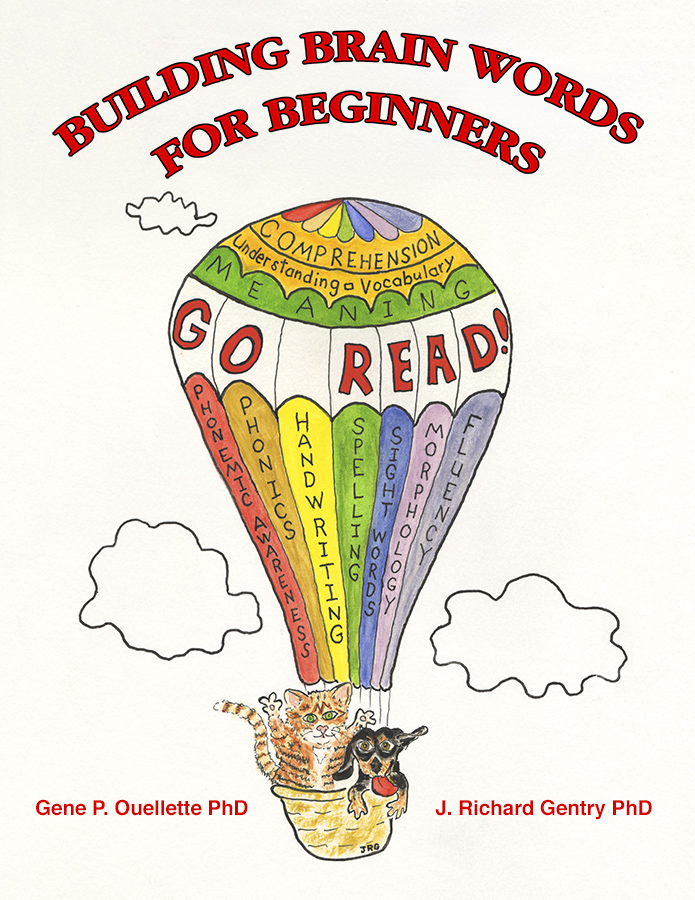
GO READ! is a companion book to the authors’ best-selling book, Brain Words, How the Science of Reading Informs Teaching. Both are based on the Science-of-Reading methodology backed by neuroscience and developmental psychology.
GO READ! fills the gap between the Science of Reading and classroom instruction. It includes 30 weekly sets of lesson plans with 5 daily lessons for each week. In this video, Dr. Gentry shares the lesson plan for Week 3, Days 1 through 5. The audio PowerPoint Presentation by Dr. Gentry describes the main objectives for each day and includes pages straight from the book for the daily lessons. This will give you a detailed preview of how this powerful curriculum for automatic word learning for reading and spelling works.
Below is a printable and downloadable PDF version of the sample lesson plan for Week 3, Days 1-5.
GO READ!
BUILDING BRAIN WORDS FOR BEGINNERS
Co-Authors:
Gene P Ouellette, Ph.D.
J. Richard Gentry, Ph.D.

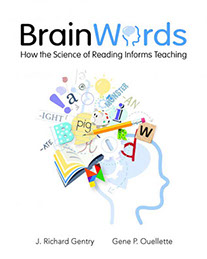
From the authors who brought you Brain Words, How the Science of Reading Informs Teaching now comes their latest book, GO READ! Building Brain Words for Beginners.
So What is GO READ!
Built around 30 weekly sets of lesson plans, Brain Words for Beginners is a structured, step-by-step program of lesson plans with a carefully curated word curriculum for beginner readers – all built around the science-based theory and approach we presented in Brain Words?
Built around 30 weekly sets of lesson plans. In order to keep these lesson plans to a single page each, they are presented in more of an outline form, with references made to our carefully curated word list and suggested activities, which are detailed in the initial chapters. The lesson plans follow the same structure each week, giving you the flexibility to pick and choose activities and to allocate time to the skills you see most pertinent for your students. Whether you choose to follow the plans as is from start to finish, or tailor the program to your needs, we truly hope they will prove helpful to you in your important role teaching children the magic of literacy.
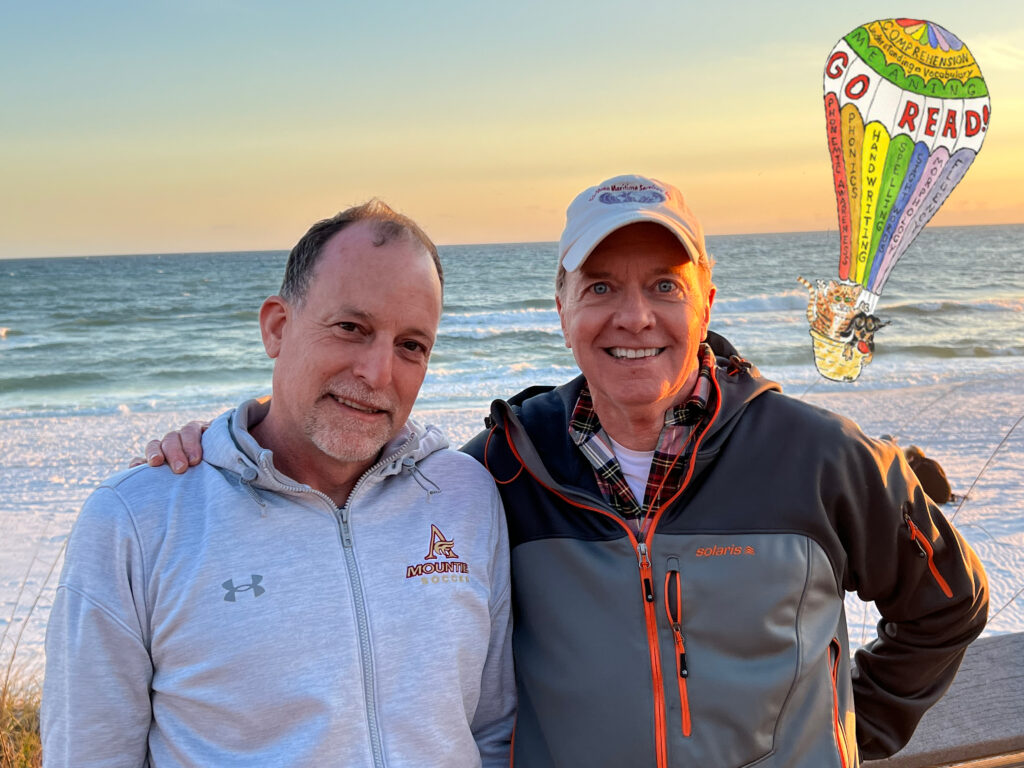
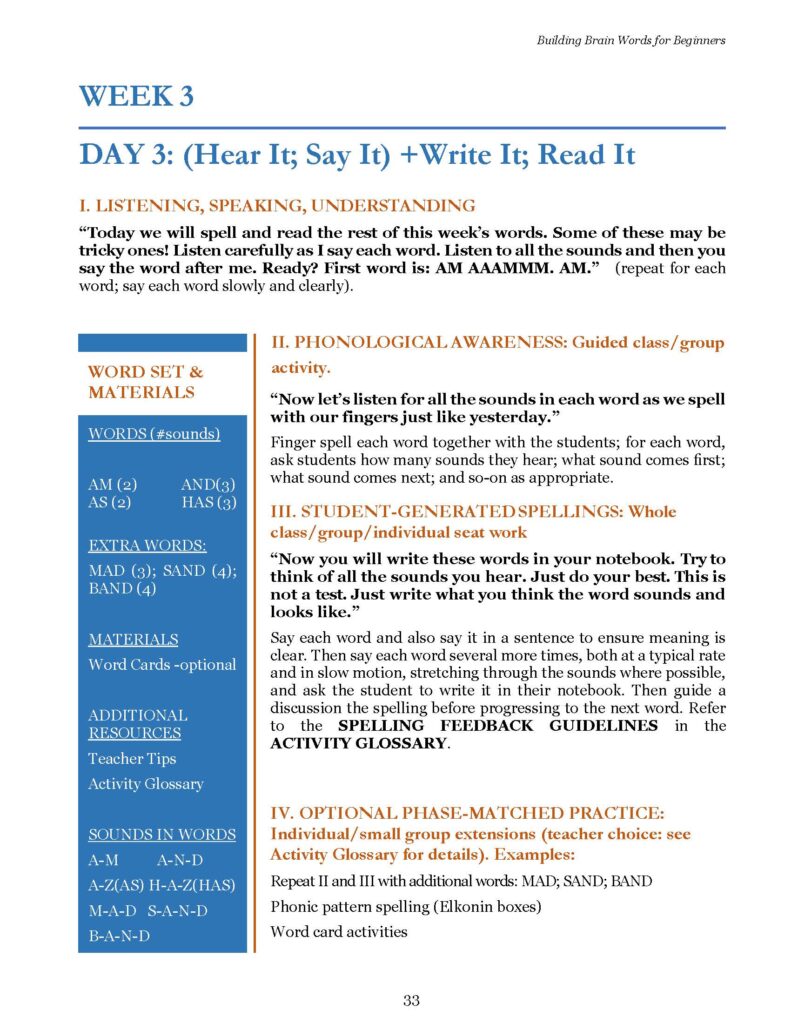
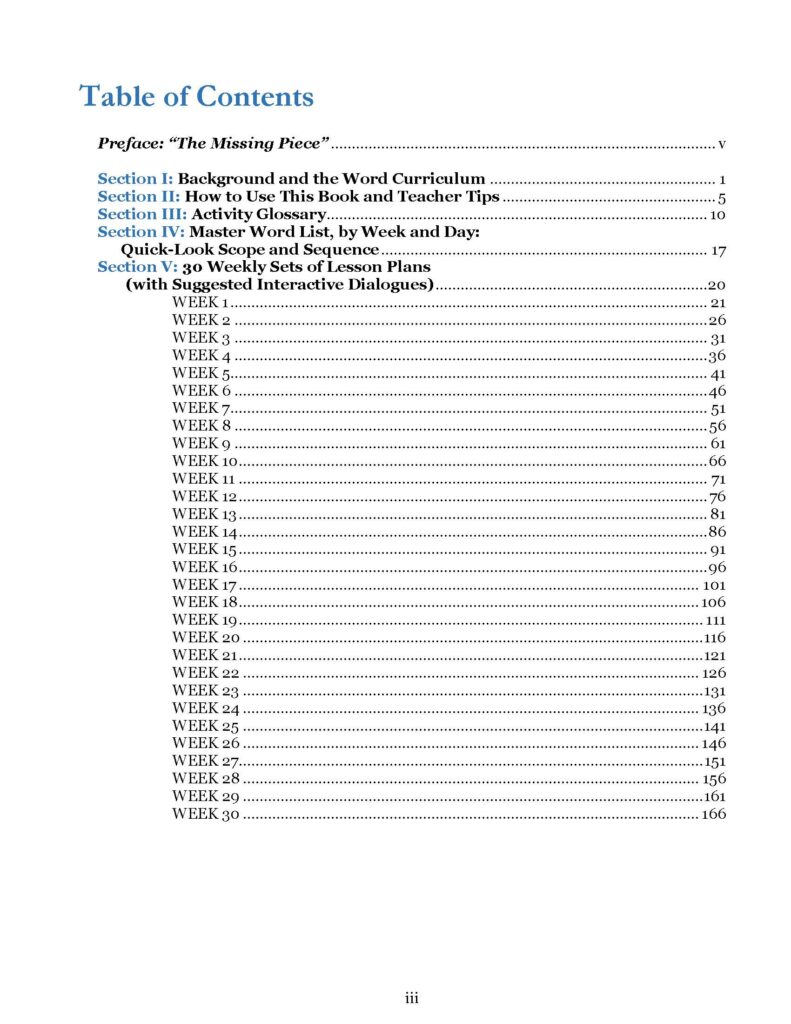
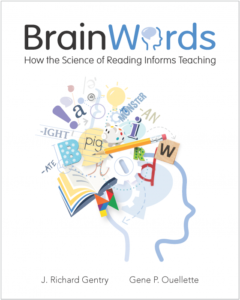
In many ways, we see this book as the “missing piece” in literacy instruction. That is, our step-by-step approach can be integrated or added to any classroom or to any curriculum currently being followed, because it adds something that is so important and often missing- targeted word study, integrating speech, hearing, phonological awareness, decoding and encoding- all to build lasting representations for reading and writing.
It is important to stress that this is not a complete literacy curriculum, structured phonics program, or spelling module. Rather, our intent was to provide an approach to word study based upon the science of reading, that can be added to any currently followed program or curriculum, and in as little as 10 minutes a day. Again, Building Brain Words for Beginners is designed to be that “missing piece”, an application of the science of reading, to help students on the journey to becoming fluent readers and writers.
And that is what we mean by the missing piece!
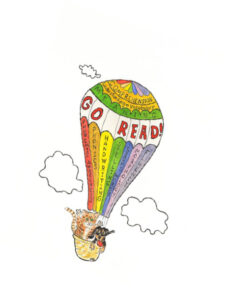
.
How Developmental Theory and the Science of Reading Inform Teaching
For nearly two decades there has been a huge gap between the science of reading and instructional practices in the classroom. Now with decades of accumulated research in developmental, cognitive, and educational psychology as well as from neuroscience, there is an explosion of new understanding about the architecture of the reading brain and how children learn to read. This has led to an increased interest in the science of reading- yet most approaches to teaching reading still do not incorporate some of the most important findings from the scientific research.
Today developmental theory and the science of reading say that all students need brain words to ignite the reading circuitry in the child’s brain. Brain words are what we call the stored mental representations of phonics patterns and words essential for igniting the reading and writing brain; these representations store and link a word’s spelling, pronunciation, and meaning and are what underlies the progression to fluent reading with comprehension. And brain words are essential for writing too- indeed, brain words for reading and writing are two sides of the same coin for beginning literacy. Building Brain Words for Beginners provides a step-by-step progression for developing brain words, in as little as fifteen minutes a day. This is accomplished with multisensory, engaging, science-based practice that can be used with an entire class, small groups, or with individual learners, hence enabling you to both individualize and track each student’s journey to reading and writing success.

